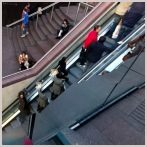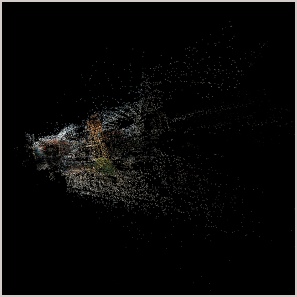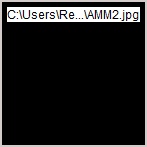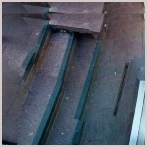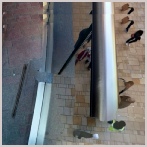Another Timbre TimHarrisonbre
Seth Cooke - Architectural Model Making
Binaural field recording; feedback; pre-recording of a model of a model of a firearm
“The following... is an overview of the integrated Hillsboro Active Shooter Model.
Officers respond to dispatched reports of an Active Shooter. As they arrive, they
each park on the same side of the street and purposely leave space for the ingress-egress
of fire equipment and ambulances. The first officers arriving make either solo or
two-officer entries at their discretion. Multiple ingress points are employed, converging
quickly on the suspect. If there are indicators of the suspect wounding people, the
officers rapidly move to interrupt the killing. If there are no indicators, the officers
rapidly begin to dominate key architectural features such as hallways, stairwell
exits and elevator banks in multi-story buildings.”
George Williams, Maximizing Life-Saving
in Active Shootings
A binaural recording was made of the reverberation caused by playing
back a recording of the BBC Research & Development Internet Research & Future Services
Web Audio API model of the BBC Radiophonic Workshop’s 1954 Gunfire Effects Generator
into Bristol’s Cabot Circus shopping centre. The resulting impulse response model
– contaminated by the subjectivity of microphone placement and innumerable uncontrollable
synchronous sounding events – was convolved with a binaural recording of shoppers
enjoying late opening in the same space on the evening of Thursday 5th December 2013.
Both recordings were made with permission.
This instantiation of Architectural Model Making uses the score to modulate the number
of times the recording was convolved through the impulse response, or the degree
to which the idiosyncrasies of the aberrant model were allowed to reinforce themselves.
Hughes’ dynamic notation was replaced by intensities of feedback, with “silence”
replaced by “untreated.”
The images accompanying this piece are taken from Photosynth
models of Cabot Circus. They include both the point cloud and details of photographic
anomalies caused by inaccurate mapping in the point detection and matching algorithms.
By coincidence, the pseudo-3D model from which the stitching errors were derived
was created from digital photographs taken within a metre of the location at which
the binaural recordings were made. Those with maladaptive worldviews might linger
on such a synchronism, reprocessing it again and again until it signifies something
else entirely.
Play track
